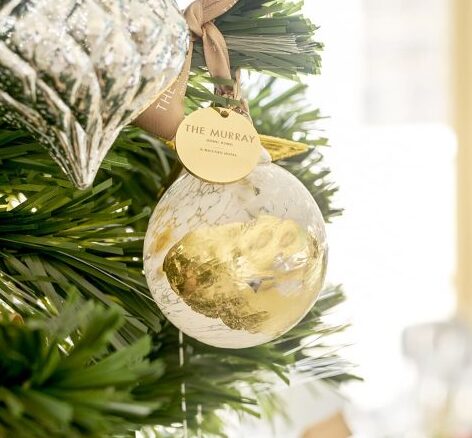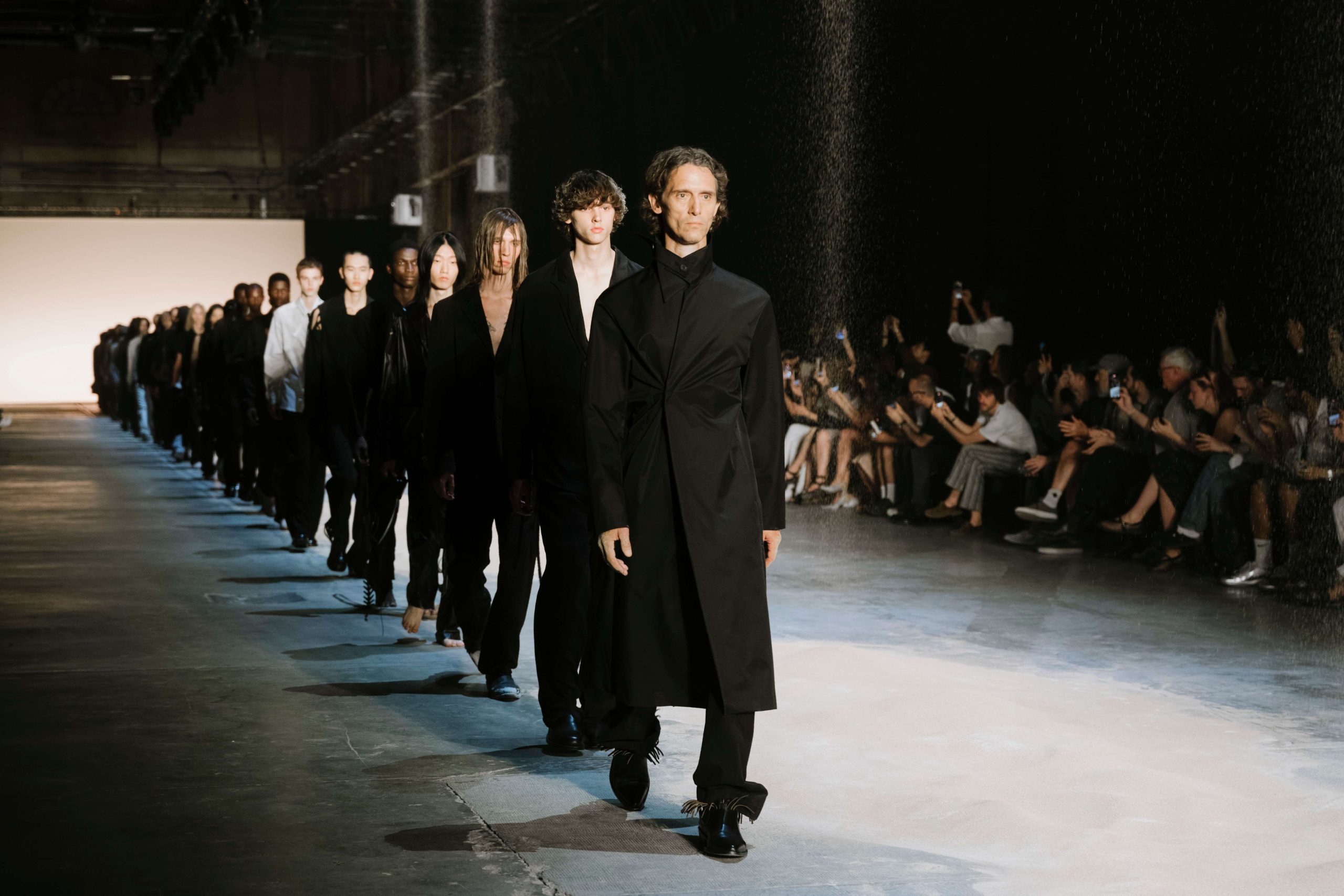Best known for his eponymous Daniel on Manhattan’s Upper East Side, Daniel Boulud is one of America’s most revered chefs. He tells Stephenie Gee about what it takes to be a chef today, his inspirations and making his Asia debut
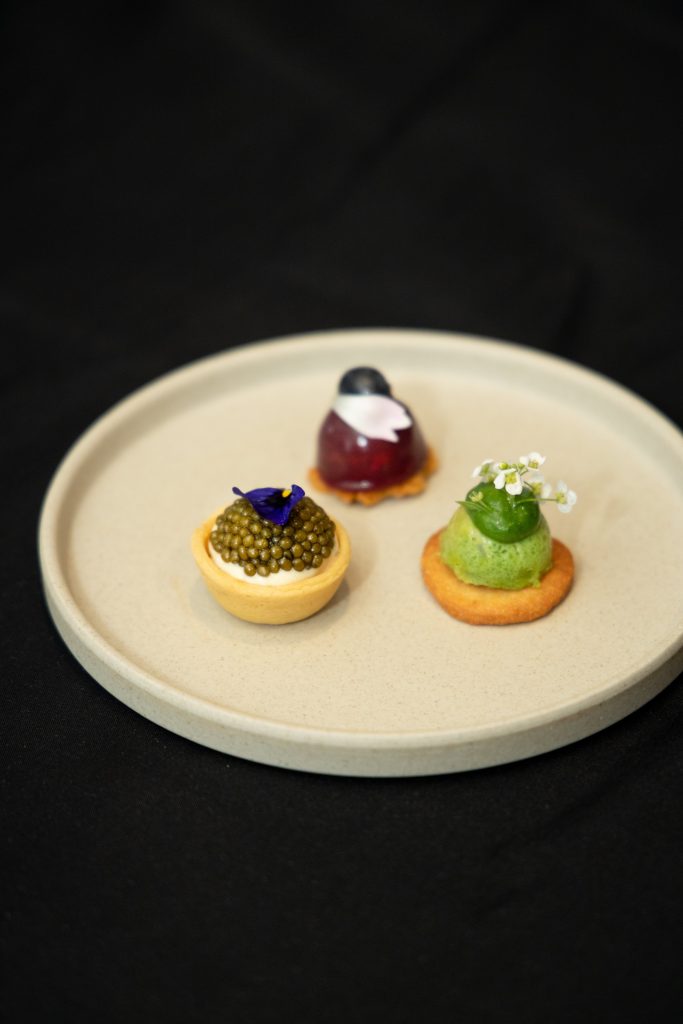
Daniel Boulud is a busy man. Last year, the New York–based French chef launched bespoke catering enterprise Cuisine Boulud New York, American-French steakhouse La Tête d’Or, and Café Boulud in the Four Seasons Hotel Riyadh, marking his first venture in Saudi Arabia. This year, he introduced Julien by Boulud, an ultra-intimate, 10-seat chef’s table experience discreetly nestled with the latter, as well as joined the Air France brigade with exclusive creations for the carrier’s La Première and business passengers on flights departing the US.
When we meet in early July, the 70-year-old is in town for a four-day pop-up at the Mandarin Grill + Bar ahead of the opening of his highly anticipated rooftop restaurant, Terrace Boulud in early 2026. “Five minutes! I’ll be back, promise!” Boulud assures me. He has just wrapped up lunch service and is being pulled away for a last-minute Zoom with his team in Paris. He eventually returns, some 50 minutes later, with a trumpet of apologies. “Sorry! I’m so busy. If it was only here, it would be easy. But with all my teams in all the different continents, there is always somebody.”
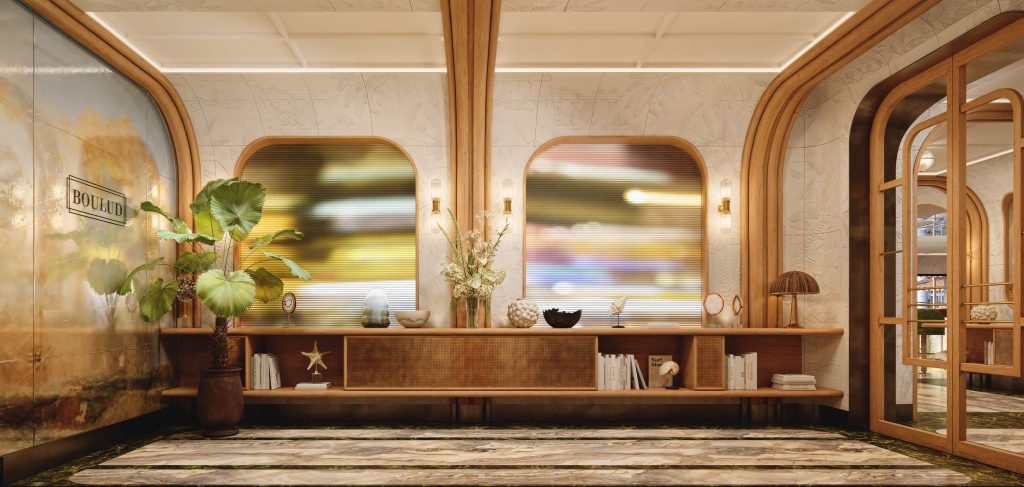
You sense Boulud wouldn’t have it any other way, however. One of the most celebrated chefs of our time – his decades-long career has seen him pen a number of culinary books, win James Beard awards multiple times, earn coveted Michelin stars and World’s 50 Best Awards distinctions, and mentor chefs who went on to become renowned culinary figures of their own – he has never been one to rest on his laurels.
Raised on a farm just outside Lyon, France, Boulud spent his childhood at the farmer’s market with his father, tending to animals and crops, and making goat cheese with his grandmother. He didn’t know much about what a chef actually did – he had never been inside a restaurant or eaten store-bought food – but knew it was what he wanted to do. At 14, he already had his first experience working in the two-Michelin-starred restaurant Nandron in Lyon, where he apprenticed with chef Gérard Nandron. Quickly, he rose through the ranks of his home country’s best restaurants and later in Copenhagen, before arriving stateside in 1981.
He figured he’d only stick around for a couple of years to finish his stint in Washington, DC as a private chef for an ambassador. But a year later, he headed up to New York and took a job at the Polo Lounge, working alongside Thomas Keller. 1986 was a turning point for the Lyonnaise chef, as he took the reins as executive chef at the iconic Le Cirque. The city has remained his home ever since.
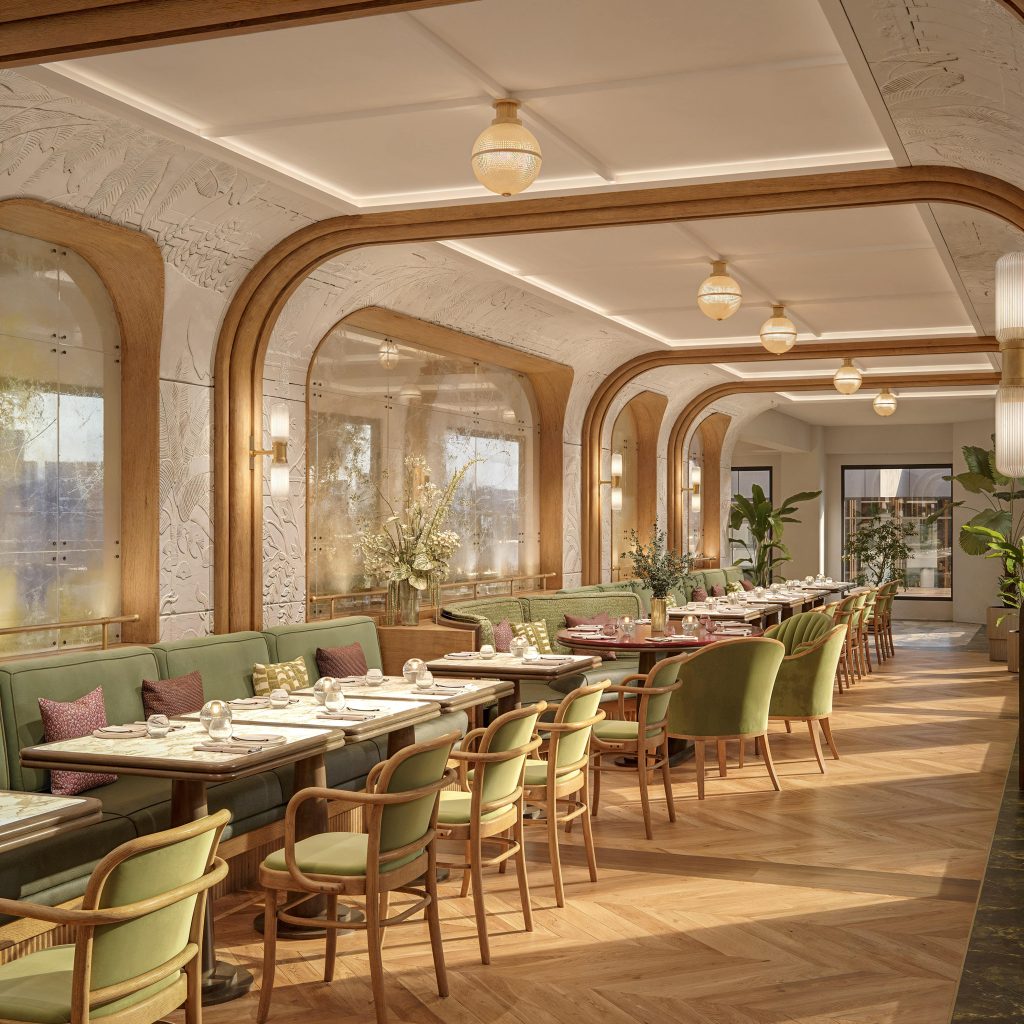
“I grew up in Lyon and had the chance to start cooking at a very young age. Cooking is a tight community, so if you work for someone who is very good and if you are a good apprentice, they will recommend you to another friend, and the other friend will recommend you to another friend. And growing up on a farm, the pride and the beauty was everything we grew, all the vegetables, all the chicken, the duck. We would make our own cheese – we did so many things, and we did it with a lot of pride and a lot of care. So I think cooking, it’s about starting with very good ingredients and transforming them, and [this is the philosophy that has guided me] always,” he recalls.
Boulud’s biggest break came in 1993, when he opened his eponymous restaurant, Daniel – which he has lived above for the past 28 years with his family. The restaurant won raves for the way in which he elevated the French country cooking he grew up on. From there his empire grew, stretching from New York to Palm Beach and from Singapore to Dubai, with concepts that include fine dining, casual bistros and cafes, steakhouses and seafood venues. All of which take cues from his four muses: La Tradition, featuring French classics; La Saison, driven by the freshest, seasonal produce; Le Potager, inspired by the vegetable garden; and Le Voyage, which takes its impetus from global cuisines.
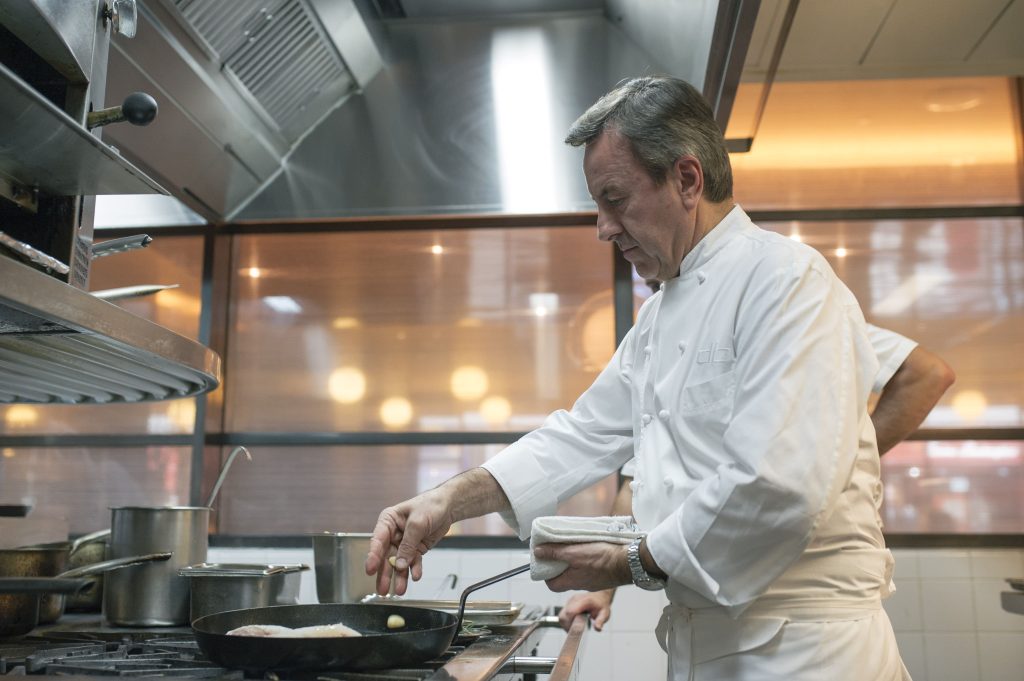
“These four muses have always been the driving force of my cooking career. Especially La Tradition, because I’ve been brought up to learn about classic French cuisine,” Boulud says. “It’s a little bit like Chinese cuisine, I think. There is the classic application, the regional cuisine, the different approaches, and the history of it from books and the previous generation of chefs. And I think with French cuisine, we have such an incredible depth of aspiration and knowledge that keeps evolving generation after generation. If I open a book from, say, 1850 and see what they were doing, I’m inspired.”
Take, for example, Boulud’s famous “chobster”. A reinvention of the 19th-century poularde homardine, the Franken-creation pairs a roasted Sasso chicken with lobster, topped with sauce Nantua and spring rice. The kitchen infuses the bird with lobster essence, flambéing it with cognac, and finishing things off with a rich sauce of lobster bisque, chicken jus and crème fraîche. The whole shebang is presented tableside, dressed up with a robotic brass lobster head, tail and claws, before it’s returned to the kitchen for carving and shelling.
“It’s reinventing a classic and creating a new one at the same time. That’s what it’s all about,” he says. “If there is any memory of food, it’s all in the classics. Often people remember dishes because they were something that their parents and grandparents enjoyed, and so the root of my cooking is based on tradition. But you always keep learning. You always go back to the past and ask, ‘What else can we do?’ It’s like fashion and art. You take references from the past and try to create something new for the moment. What is also fun is watching all the endless crop of young talent that are coming up putting their own spin on what I put my spin on.”
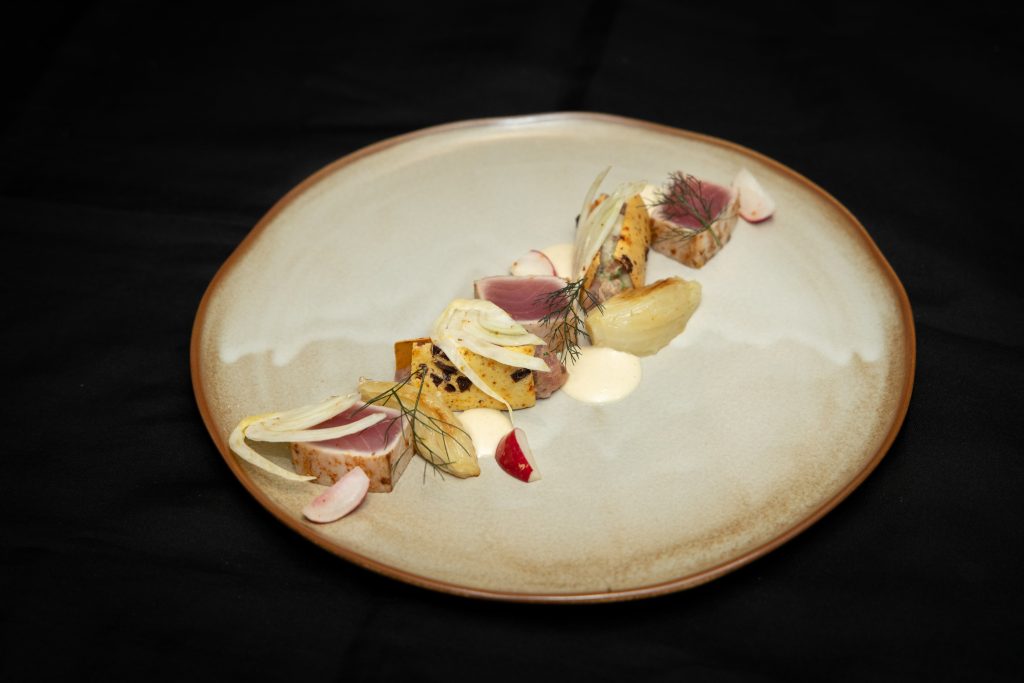
Developing budding chefs has long been part of Boulud’s manifesto, whose protégés include Gavin Kaysen, David Chang, and Hong Kong’s own Vea and Wing founder Vicky Cheng and Black Sheep Restaurants’ Matthew Kirkley. Together with Thomas Keller and Jérôme Bocuse, he founded the non-profit Ment’or BKB Foundation in 2008 to develop new generations of American chefs. In his book Letters to a Young Chef, he extols the value of mentorship: “Work with a master. Learn to think like the master. And one day the master will have the confidence to ask you to move his or her work forward.” He adds, “Today, there are many chefs that have a lot of talent, but they don’t know how to stay in business. So the hardest part of mentoring is teaching a young chef, who is burning with creativity and talent, how to materialise their talent into a business that is withstandable and lasting.”
Because in this world, it’s not just about cooking – it’s about resilience, passion and an unyielding spirit. “I started with nothing – it’s not like I was born with a father that had already had 20 restaurants,” Boulud continues. “I worked. I observed. It takes more than cooking to succeed in what I do – there’s also the service, the wine, the décor, the ambience. I’m interested in all the moving parts of the business, especially the service, which is a key component to the success of a restaurant. This hospitality is the DNA of me, Daniel Boulud, and of our company. So at our restaurants, whether you spend $300 or $30, there is always that sense of hospitality nonetheless.”
This includes, of course, Terrace Boulud.
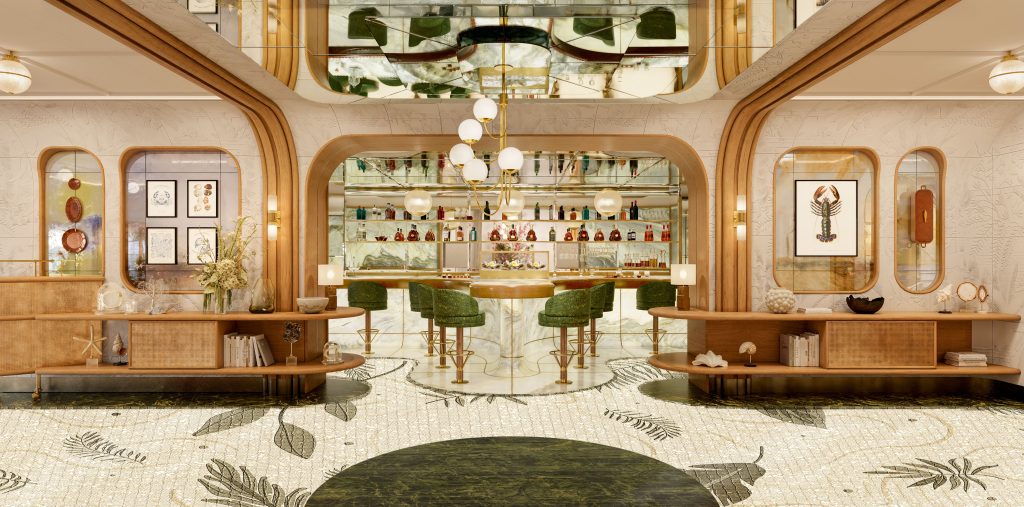
Taking over the former Sevva space on the 25th floor of Landmark Prince’s, Terrace Boulud will bring the spirit of the modern French bistro to new heights – literally, with sweeping views of Victoria Harbour and the city skyline. The opening marks a milestone not just for Boulud as his Asia debut, but also for the Mandarin Oriental, Hong Kong, which is extending its culinary footprint beyond the walls of its iconic flagship hotel for the very first time. Terrace Boulud will anchor Mandarin Oriental’s presence within the newly reimagined Landmark, a cornerstone of the US$1 billion “Tomorrow’s Central” transformation by Hongkong Land.
“In France, brasseries, bistros and cafes aren’t necessarily casual – they can be upscale too. You can really splurge and you enjoy very good ingredients, but just sometimes in a more simple way. These are places you can go back often, with a group of friends, maybe, and you can go to celebrate anything. It’s a place that is easy to rendezvous because you know that the price is going to be okay, the hospitality is going to be great, as is the food, and there’s a wonderful ambiance. But, as always, we have a tendency to make things a little bit more upscale than basic ones,” Boulud explains.
Designed by Malherbe Paris, the interiors will fuse the charm of traditional French brasseries with the glamour of luxury train travel, reflecting Boulud’s refined global culinary vision. The menu will be seasonally driven and as local as possible, executed with his signature blend of elegance, curiosity and precision.
“I want this to be a place where guests feel happy and comfortable and can return to all the time. And, most importantly, deliver a delicious experience.”
Also see: A French chef’s journey, son of a Michelin-starred chef



